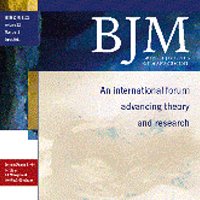Big Egos Can Be Green: A Study of CEO Hubris and Environmental Innovation (2017)

“CEOs’ hubris may provide the required force for overcoming obstacles to the development and introduction of green innovations.”
Arena, C., Michelon, G. and Trojanowski, G. (2017), Big Egos Can Be Green: A Study of CEO Hubris and Environmental Innovation. British Journal of Management. doi: 10.1111/1467-8551.12250
“Hubristic CEOs are usually impulsive and restless individuals affected by hyper-levels of self-evaluation, self-confidence and self-worthiness which lead them to overestimation of their actual ability, performance, level of control or chance of success (Hribar and Yang, 2016; Li and Tang, 2010).
“They are also characterized by a disproportionate concern about image and need for admiration typical of a narcissistic personality (Owen and Davidson, 2009).”
“This paper examines whether and to what extent CEO personal traits (hubris, in particular) affect firm environmental innovation.
“Using the overarching theoretical framework of upper-echelons theory, the paper builds on the insights from the corporate strategy, innovation, and corporate social responsibility literatures. We also examine the moderating role of firm-specific features (e.g. organizational slack) and the external environment (e.g. market uncertainty) in this context.
“Based on a sample of UK companies operating in sensitive industries, we find that CEO hubris facilitates the engagement in green innovative projects. We also find that CEO hubris does not have a uniform effect: its effect on environmental innovation increases with the organizational slack, but weakens with the extent of environmental uncertainty.
“Our findings suggest that availability of resources per se is not enough to produce environmental innovation. Instead, it requires a stable external environment that enables the CEO with a hubristic personality to make a correct use of them.”
Link to the full paper can be found here: Big Egos Can Be Green: A Study of CEO Hubris and Environmental Innovation (2017)






Leave a comment
Back to the top